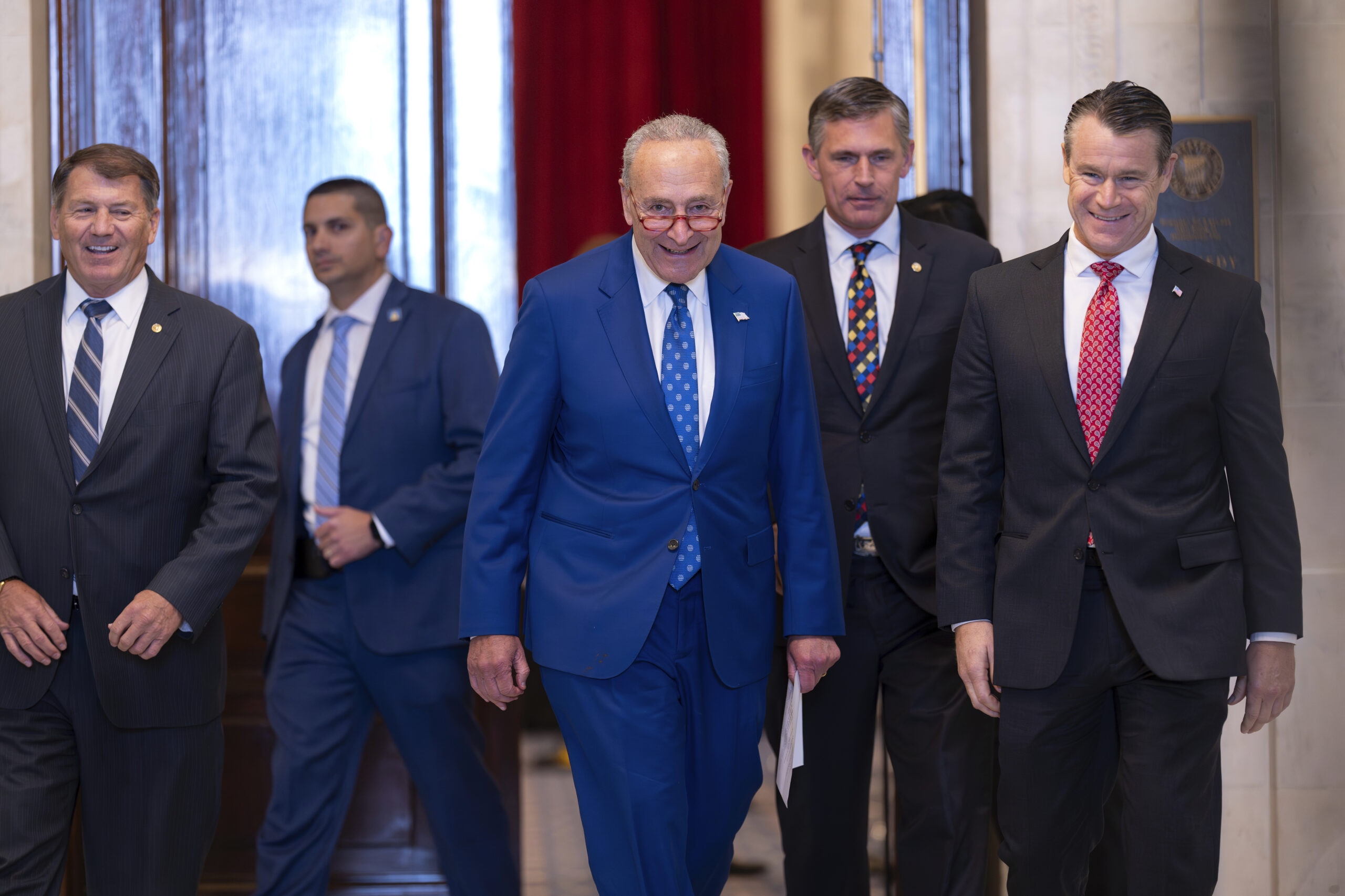

Congress is running out of time to pass guardrails for the use of artificial intelligence in the 2024 elections.
With the primary season for the presidential election in full swing and the general election fast approaching, legislation has not advanced, and experts see a possibility that Congress won’t act until after the bulk of the campaigning is done.
The subject received extra attention this week thanks to the news that some New Hampshire voters received a message with a fake recording of President Joe Biden’s voice, generated by artificial intelligence, that encouraged Democrats not to vote.
Senate Majority Leader Chuck Schumer had said in September that he would push legislation to limit AI-generated misinformation in the coming election as a top priority. However, there have been no signs of such an initiative since.
“The amount of interest in AI in Congress and the States is nearly unprecedented in terms of technology policy history,” Adam Thierer, a senior fellow of Technology & Innovation at the R Street Institute, told the Washington Examiner. “That does not mean Congress will be able to get its act in gear and get anything done on AI this session.”
Congress is “completely dysfunctional and broken,” Thierer said, making it hard to pass any legislation. Only 27 bills passed in 2023, a record low for the legislative body.
Schumer hosted multiple “AI Insight Forums” in the fall of 2023, at which experts testified about the risks of AI and about measures to ensure that developers such as OpenAI and Anthropic have the space to innovate or develop new products. The series included a session on elections in November, at which AI startup founders and experts from Stanford and Microsoft spoke on how the technology could spread false information and what sorts of rules could be implemented to stop that.
Schumer said in December that he would allow the committees to develop and advance the appropriate legislation. So far, they have not advanced election-related bills.
Some bills that deal with AI-generated election advertisements have been introduced. Sen. Amy Klobuchar (D-MN) and Rep. Yvette Clarke (D-NY) introduced the REAL Political Ads Act in May 2023, which would restrict AI-powered political ads, but the bill has not advanced in either chamber. Klobuchar also introduced the Protect Elections from Deceptive AI Act alongside Sens. Cory Booker (D NY), Chris Coons (D-CT), and Josh Hawley (R-MO) in September, a bill that would require political ads to have disclaimers if their content is AI-generated. The bill has not gained any traction, Klobuchar told reporters in November, and needs additional sponsors before a committee picks it up.
Schumer and Klobuchar’s offices did not respond to requests for comment from the Washington Examiner.
The Committee on House Administration, which also handles election matters, is not considering legislation or hosting any hearings on AI in the 2024 elections. The Senate Committee on Rules and Administration, led by Klobuchar, hosted a hearing on the “emerging threats to election administration” in September but has not done anything since.
The Senate and House Rules committees did not respond to requests for comment.
“What we need is government oversight, enabled by clear and comprehensive regulations,” Hamid Ekbia, the director of Syracuse University’s Autonomous Systems Policy Institute, said in an email to the Washington Examiner. “Congress should move on this fast, but it is not. States are taking actions to fill the gap.” Congress’s inaction will likely lead to a patchwork of state-by-state policies on AI, Thierer said, which could significantly increase costs for technology companies and campaigns.
While voters cast their ballots in state primaries for the next few months, the general election typically does not go into full force until both parties’ candidates are confirmed at their conventions. While it is possible that Congress could muster interest in passing AI- and election-focused legislation, the legislative branch has “put too much on their plate and partisan political games also now make policy action on even the most basic things (the budget, the border, etc) impossible to accomplish without protracted and bitter battles,” Thierer wrote in a blog post.
It is possible that the Federal Election Commission could step up in Congress’s stead. The federal regulator introduced rules for regulating AI in political campaign ads in August and said it intends to address the subject in “early summer.” That may not be enough time for the FEC to “have a rule out in time for the 2024 election,” Robert Weissman, the head of the consumer advocacy group Public Citizen, wrote in a statement.
The slow passage of legislation has led to AI companies implementing their own guidelines for how their products can be used in future elections. ChatGPT developer OpenAI adopted protocols last week that will allow users to identify AI-generated images through “credentials” attached to all images made by DALL-E, its generative image generator. The company also updated its usage policies for ChatGPT and DALL-E to bar anyone from using the software to impersonate government officials or institutions. The company previously banned political campaigns from utilizing the software to target specific demographics.
Google and Meta also adopted guidelines requiring political advertisements to disclose if AI-generated images were used.







